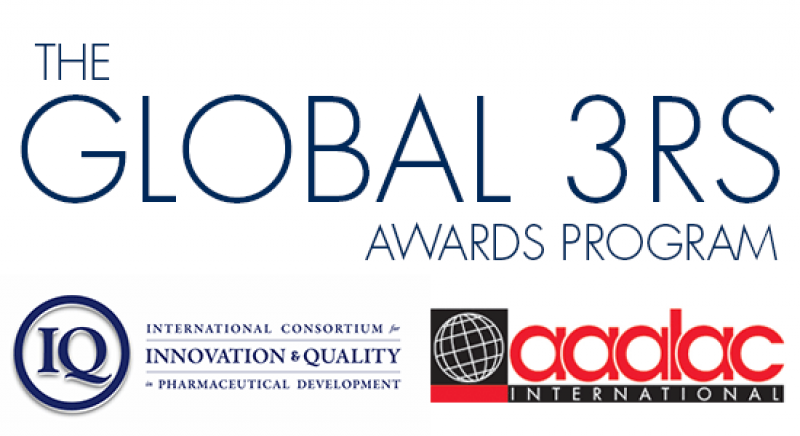2017 Global 3Rs Award Winners

November 13, 2017
The Global 3Rs Awards program, a collaboration between AAALAC International and the IQ Consortium, recognizes the following individuals for their significant innovative contributions toward the 3Rs of animal research to advance ethical science in academia or industry in any area of biology. The 2017 winners are Dr. Marcel Leist and Dr. Mark E. Smith.
EUROPE
Dr. Marcel Leist
Dr. Marcel Leist is Chair for In Vitro Toxicology and Biomedicine at the University of Konstanz in Germany. He is receiving a Global 3Rs Award for the article, "Stem Cell-Derived Immature Human Dorsal Root Ganglia Neurons to Identify Peripheral Neurotoxicants," Stem Cells Translational Medicine (2016). The authors note that because of the toxic effects of many chemicals on the peripheral nervous system, rather than the central nervous system, there is a large need in toxicology to test for peripheral neuropathies, most of which rely on animal experimentation using pluripotent stem cells. The authors generated human peripheral neurons to establish, validate and apply a test for peripheral neurotoxicants. About three dozen compounds were tested to establish a prediction model for the assay. This PeriTox test reacted correctly (sensitivity of 87%) to many known human peripheral nervous system toxicants, and it discriminated (specificity of 100%) between peripheral neurotoxicants and chemicals not expected to cause peripheral neurotoxicity. This establishes a solid and complete test method to screen large numbers of compounds and identify neurotoxic 'hits' based on a tested prediction model. Animal testing for general organ toxicity will continue until alternative assays are available that reliably cover toxicity to all major organ systems. The PeriTox test closes a large gap in alternatives to animal use. This Global 3Rs Award will be used to validate the test for different applications to further close the gap between the initial setup of this test method and its widespread use.
NORTH AMERICA
Dr. Mark E. Smith
Dr. Mark E. Smith is Chief Scientific Officer at American Preclinical Services (APS) in Minneapolis, Minnesota. He is receiving a Global 3Rs Award for the article, "Thrombogenicity Testing of Medical Devices in a Minimally Heparinized Ovine Blood-Loop," Journal of Medical Devices (2017). This work addresses the initial validation and continuing development of a novel test for screening medical devices that are placed in the bloodstream of patients to assess thrombogenicity, their potential to form blood clots. This new test has the potential to replace the commonly used in vivo test -- the Non-Anticoagulated Venous Implant (NAVI) thrombogenicity test. The NAVI uses, at a minimum, two animals -- typically dogs, sheep or pigs -- and is required by the FDA for final approval of nearly all medical devices that contact blood. The replacement test uses blood from donor sheep which is pumped through a closed loop, simulating blood circulation in the animal. After a few hours in this system, the devices are evaluated for the presence of blood clots in a manner similar to that for the live animal model. The authors report a high confidence of similarity for the benchtop circulating blood-loop model and are continuing to collect data to support its validation. If approved, this test has the potential to dramatically reduce the number of animals used to test medical devices. This Global 3R Award prize will be used to monitor the flow rates of the circulating blood in the test configuration.
Additional information on the award is available on the AAALAC International website.